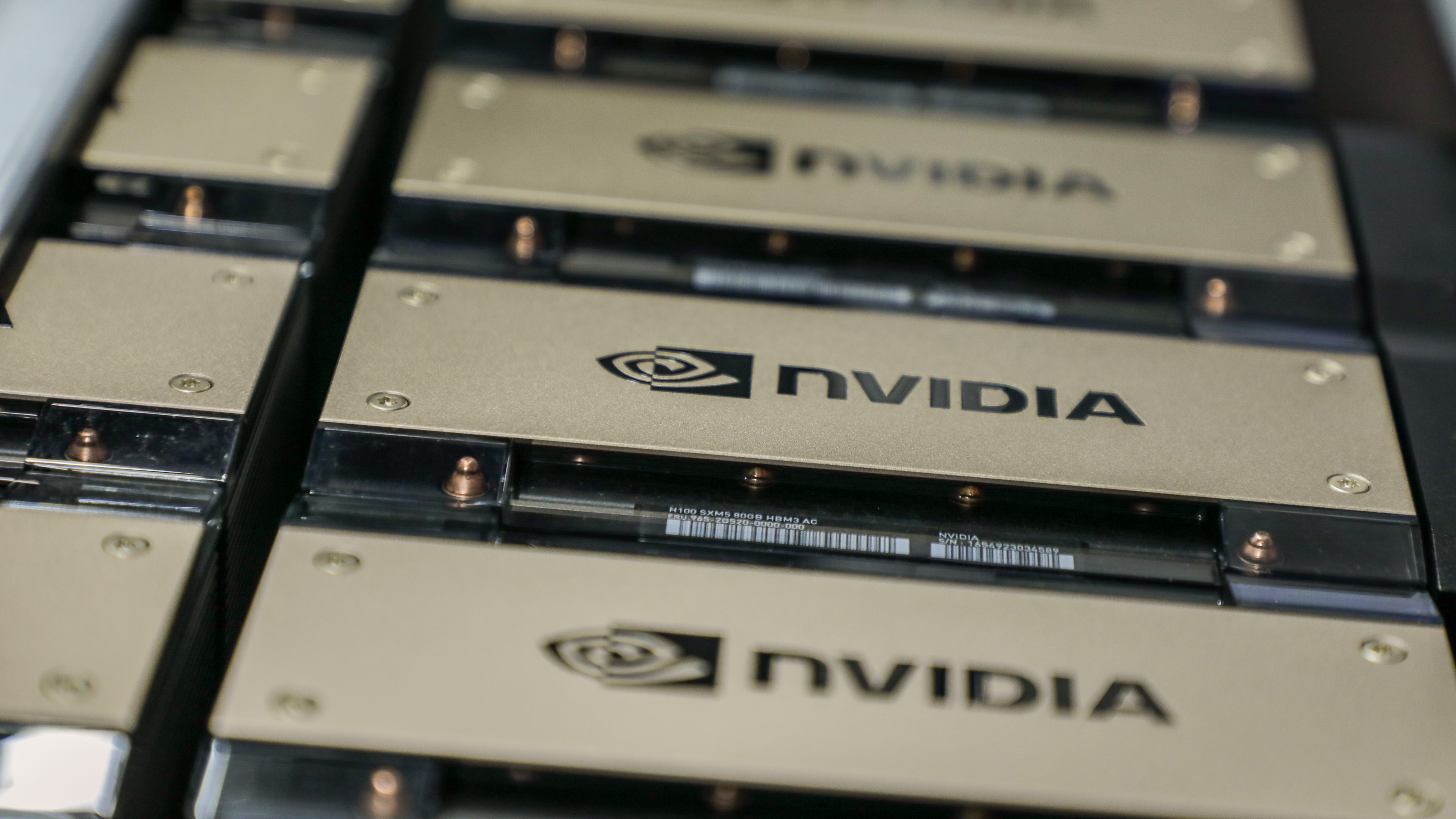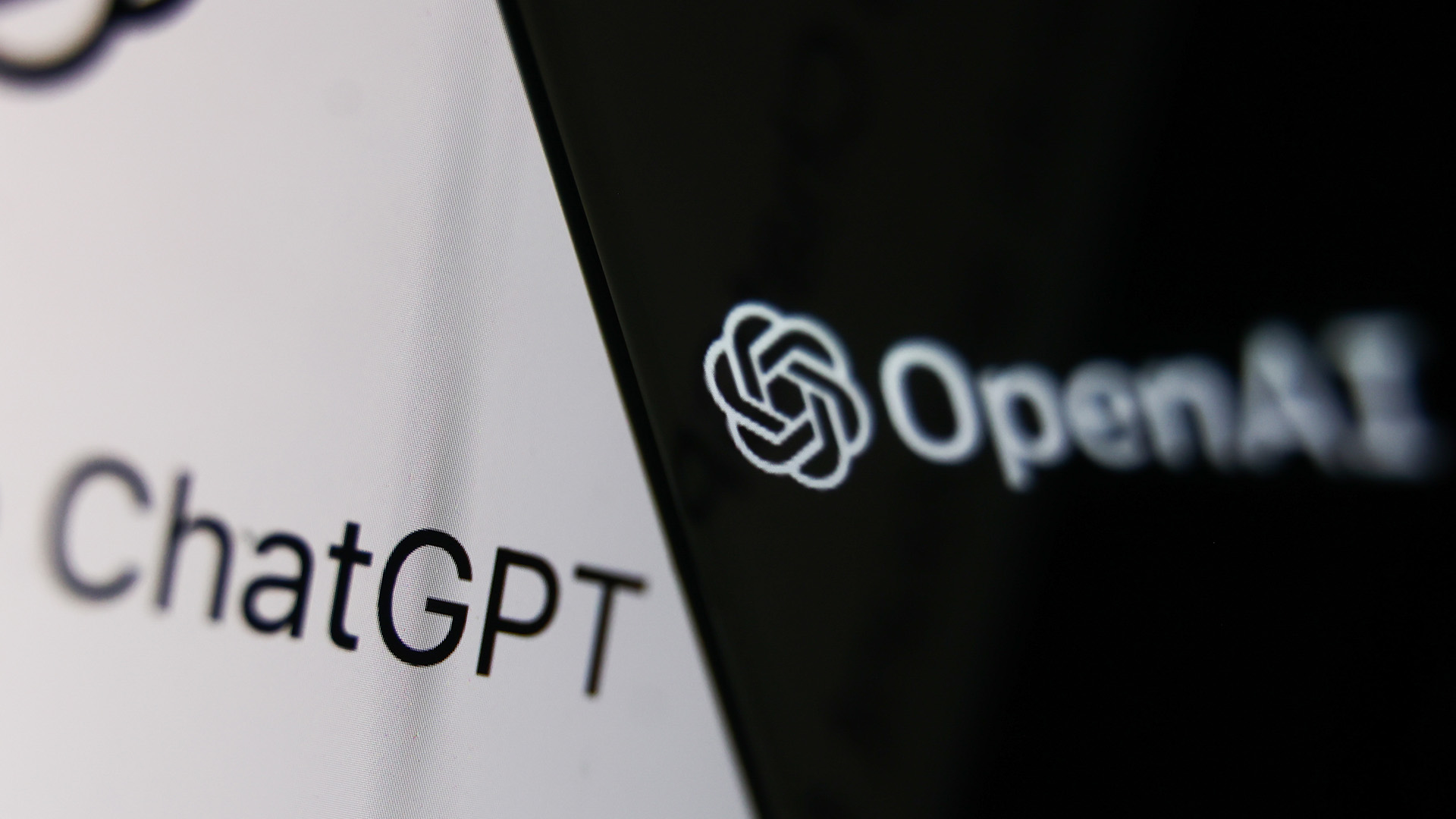
The onset of AI has clearly been a fortuitous development for Nvidia, as well as for other companies cemented in the AI industry. But there's rarely a linear path for companies even in such promising markets, and we see hints of this now with Nvidia's and other AI companies' share prices starting to drop.
As the BBC points out, share prices have dropped for a number of tech companies in both the US and Asia. This includes Nvidia, which has seen its shares drop by 6.8%. Other companies facing losses include Google's parent company Alphabet, Apple, Microsoft, and Tesla.
Although we PC gamers might sometimes be loathe to admit it, Nvidia is an AI company, now, not a PC gaming company. And although it's been a titan supplier for the datacentre industry prior to AI, the company has skyrocketed by pretty much every metric since the AI boom, as it's currently the number one seller of chips for AI workloads. Heck, Nvidia became the world's most valuable company just one month ago.
And we should certainly remember this when we hear talk of share prices falling. Nvidia is still the AI titan it was last month, as are the other AI companies now seeing downturn. To take another example, the BBC tells us chip maker SK Hynix is one of the Asian companies to see its shares drop, but we also see (via Reuters) that it's just had its highest quarterly profits since Q3 2018. This is thanks, in part, to demand for high bandwidth memory (HBM), which it happens to sell to Nvidia.
So, what gives? Well, share prices don't reflect a company's overall health, although they can certainly point towards perceived value or future value of the company. If share prices drop, this means shares in the company have started to be sold at lower and lower prices, in what might seem like a race towards the bottom, wherever that new bottom (the new share value) might be. When this happens, it can indicate that the market thinks the company is overvalued relative to where it'll end up moving forwards.

What is artificial general intelligence?: We dive into the lingo of AI and what the terms actually mean.
But this is all incredibly relative. Nvidia's been booming and climbing at such an incredibly fast rate, and has reached such heights that short-term downturn might mean little. It might be as simple as investors selling while the going's good, which certainly wouldn't mean things will be bad in the future, just that some investors can't guarantee things will be exceedingly better than right now.
Of course, companies shouldn't be considered in a vacuum, either. This downturn seems to apply to the AI industry across the board, suggesting broader market concerns. According to the BBC, Jun Bei Liu, Portfolio Manager at Tribeca Investment Partners, says that "investors are now becoming more concerned about all this expenditure with AI without the revenue benefit" which "simply means investors will focus more on returns in this space than just buying the whole sector."
The biggest gaming news, reviews and hardware deals
Keep up to date with the most important stories and the best deals, as picked by the PC Gamer team.
To me, this all screams of a giant and very hyped-up market finally and naturally levelling out. But I know little about these things, and some more knowledgeable than I have pointed out the ridiculously large sums of cash needed to keep the AI bubble afloat, given the masses borrowed to invest in it. Market investors cottoning on to this might indeed mean investors focusing more on returns with some of them selling right away, causing share prices to drop.
Whatever the case, just as some Western governments coming together to prevent AI monopoly is a reminder, this share price change too is a pertinent reminder that AI is not just a technology or tool, it's an industry with a market just like any other. And markets do ebb and flow.

Jacob got his hands on a gaming PC for the first time when he was about 12 years old. He swiftly realised the local PC repair store had ripped him off with his build and vowed never to let another soul build his rig again. With this vow, Jacob the hardware junkie was born. Since then, Jacob's led a double-life as part-hardware geek, part-philosophy nerd, first working as a Hardware Writer for PCGamesN in 2020, then working towards a PhD in Philosophy for a few years (result pending a patiently awaited viva exam) while freelancing on the side for sites such as TechRadar, Pocket-lint, and yours truly, PC Gamer. Eventually, he gave up the ruthless mercenary life to join the world's #1 PC Gaming site full-time. It's definitely not an ego thing, he assures us.

